Today marks the 143rd birth anniversary of the Iron Man of India – Sardar Vallabhbhai Patel. Exactly five years ago, the erstwhile Chief Minister of Gujarat Narendra Modi laid the foundation stone for a monument commemorating his contribution towards unifying India. Today, Modi, now the Prime Minister of India will inaugurate this world’s largest statue – Statue of Unity.
In Part I of this post we illustrated the thought behind building this monument – To reignite the idea of unity – Ek Bharat Shreshtha Bharat – A united India is a prosperous India. But it couldn’t be achieved without simultaneously bringing those together for whom Sardar stood up and dedicated his life’s work. There had to be a movement – a mass movement that connected the different facets of the idea – The Unification of India, by the Farmers’ Leader and the Iron Man of India.
The objective of the Statue of Unity Movement had thus been laid down into four major activities
- Bringing the entire country together for the construction of this monument of national pride by facilitating tangible contributions from masses.
- Iron and Soil: Specifically, farmers from villages all across India would donate used farm iron tools along with some soil from their farmland. Iron representing his unwavering dedication towards his values of unity, good governance, and soil representing how, as a farmer’s son, he went on to champion the cause of Indian farmers during India’s struggle for independence.
- Reinforce the values and contribution of Sardar Patel in the minds of Indians all across the country
- Suraaj Petition: A pledge which was signed by over 2 Crore citizens, that they will strive towards good governance.
- Photo Collage: A collage of grassroots-level elected representatives from over 5 Lakh governing bodies.
- Rallying the whole nation for “Ek Bharat, Shreshtha Bharat”
- Write for Unity: Slogan – Essay writing competitions in over 1.67 Lakh schools
- Run for Unity: A 2 km run/march simultaneously in over 565 locations across India
It was a truly pan-India movement meant to engage with masses over three months. From 31st October, 2013 till 26th January, 2014, the movement ran in four phases: Launch, Collection, Aggregation and Culmination. The movement was intended to engage over 5,28,000 villages and 5,410 urban centres in 546 districts.
Naturally central to enabling this mammoth task was communication – internally, among people who would make it happen and externally, for citizens to get involved.
Internal communications was about informing and empowering the network of volunteers to build the mobilisation. The activities that would make the movement were meticulously planned and drafted into extensive standard operating procedures. Activities ranged from spreading awareness about the movement and educating people, predominantly farmers, to facilitating their participation in it. Nearly 17,000 volunteers were on-boarded to undertake the activities in 546 districts, and were briefed over a two-day conclave in Gandhinagar – a precursor to the logistical behemoth that was to be the SoU Movement.
Central to all the activities that would be a part of the Statue of Unity Movement was a Resource Kit – that contained seven items that would enable these activities. Two of these items – the box and a soil collection bottle were to be sent back to Gujarat, while the others remained at their destined districts. Each of those seven items was designed in 13 different languages.
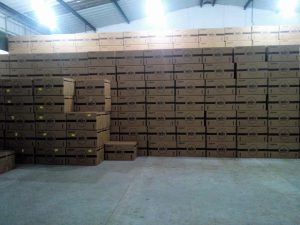
Statue of Unity Resource Kits – Ready to be dispatched
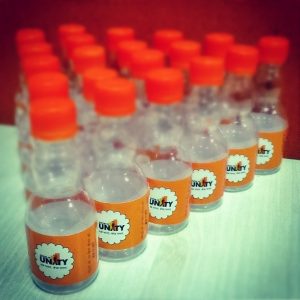
Soil Bottle – Statue of Unity
| Item | Purpose |
| Posters | One type to be pasted prior to the meeting in the respective villages and second type to be handed over to the volunteers after the locality meeting |
| Volunteer Information Booklet | To be read by the block-level volunteer and given to the village-level volunteer in the first meeting |
| Suraaj Petition | Signatures of the attendees should be taken in the Locality Meeting Event |
| Pen | Will be used to sign the Suraaj Petition in the Locality Meeting Event |
| Soil Collection Bottle | For collecting village soil and sealed. This will be carried back in the resource kit. |
| Promotional Video CD | Video CD with the movement promotional video to be given to the SoU volunteer |
| Invitation to Sarpanch | Invitation to District Aggregation event |
Write for Unity

The goal of this activity was to emphasise Sardar’s contribution in building Ek Bharat and the need to work together now in creating a Shreshtha Bharat amongst youth.
A Slogan-Essay Contest invited entries in the form of a 25-word slogan and a 200-word essay for two groups: class 6 – 8 & class 9 –12. 1.18 Lakh schools in rural centres and 49,000 schools in urban centres with support of partner organisations. Schools will be awarded prizes at national, state and district levels. The campaign was entirely digital – with information kit available online to download and entry submission through a dedicated website.
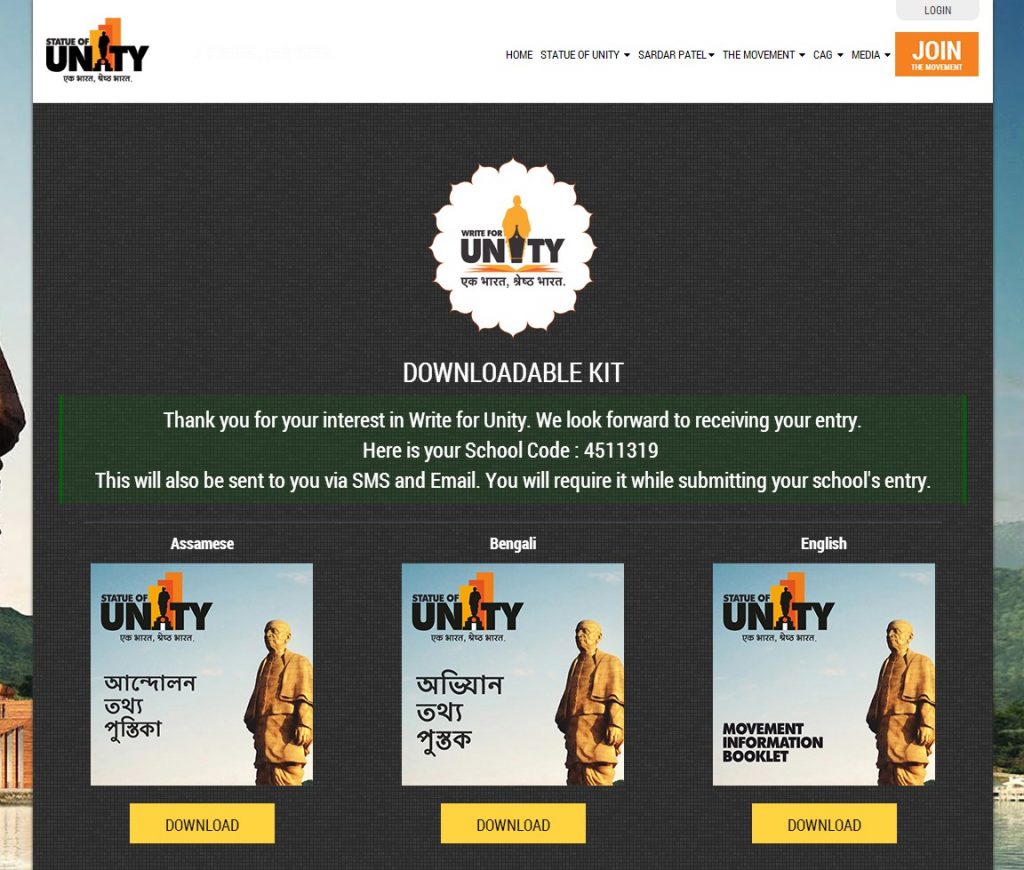
Write for Unity Website
Run For Unity
 Run for Unity was to be a curtain raiser to the Statue of Unity Movement symbolising an entire nation rallying towards ‘Ek Bharat, Shreshtha Bharat’. Over 45 Lakh people registered for the run in nearly 600 locations, and set a Guinness Book of World Record with over 200,000 people running simultaneously.
Run for Unity was to be a curtain raiser to the Statue of Unity Movement symbolising an entire nation rallying towards ‘Ek Bharat, Shreshtha Bharat’. Over 45 Lakh people registered for the run in nearly 600 locations, and set a Guinness Book of World Record with over 200,000 people running simultaneously.
One of the most remarkable illustrations of its reach was my discovery of a Run for Unity scarf, designed as a part of merchandise around the Statue of Unity Movement, in a house outside of Leh, Ladakh. The success of the Run for Unity was eventually captured in a coffee table booklet, a snapshot of which is below:
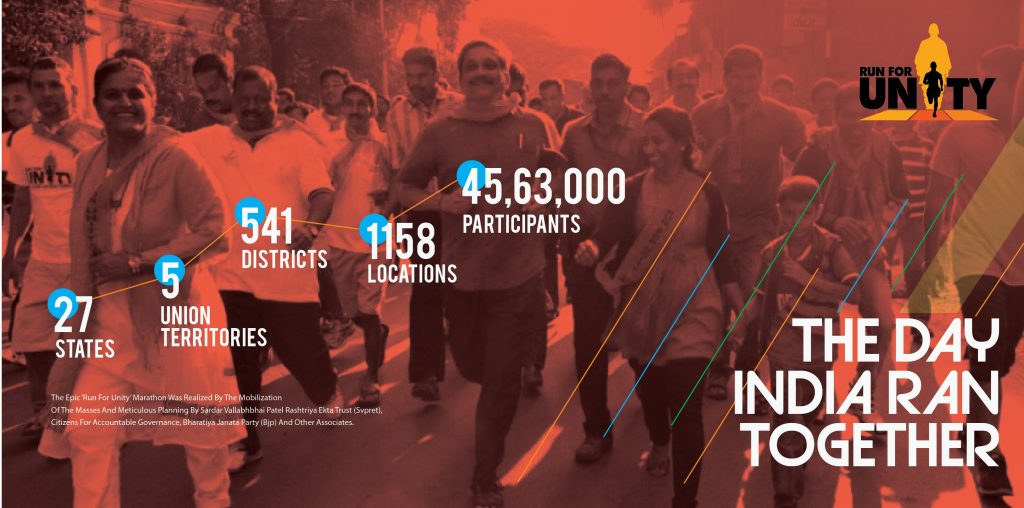
Awareness Campaign
The movement was supported by an extensive burst of ATL and BTL campaigns to create awareness and avenues around it to allow others to become a part of it.
Online campaigns aimed at describing the largesse of the Statue of Unity and the movement itself.
The statue gets unveiled as we publish this and everything that has led up to this captures the very essence of it – large and built for the people of India, by the people of India.

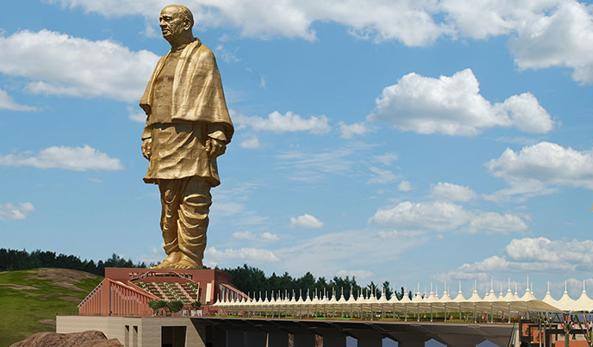

Leave a comment